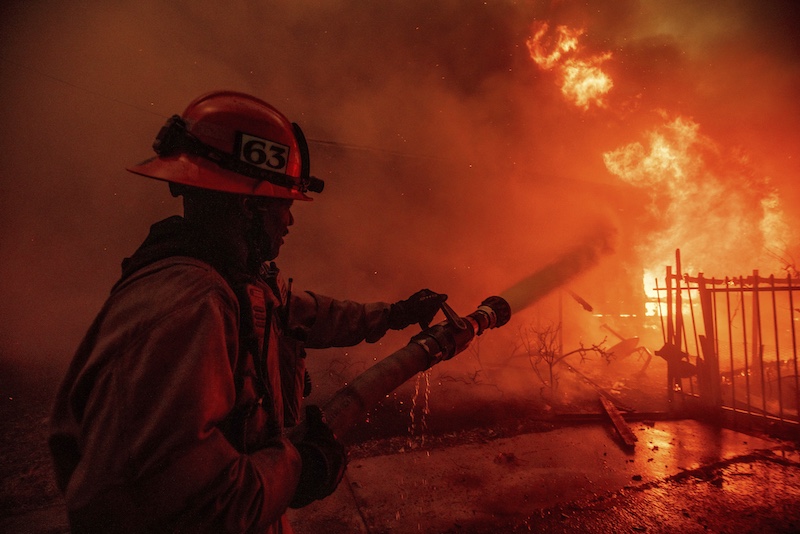Los Angeles Wildfires Highlight Urgency of Climate Action
Recent wildfires tearing through Los Angeles are not just isolated events but rather symptoms of a larger, more pervasive issue: climate change. These fires are part of a worrying trend of extreme weather patterns, including unprecedented hurricanes, floods, and heatwaves, that underline the need for immediate action.
The European Union’s Copernicus Climate Change Service recently confirmed that the past year was the hottest on record, surpassing the previous record set in 2023, as outlined in its annual climate summary report. This marks a decade of record-breaking temperatures since 1850.
For the first time in 2024, global temperatures averaged 1.5ºC above pre-industrial levels—a critical threshold set by the 2015 Paris Climate Agreement, which urged countries to limit warming well below 2°C, with a strong push for a 1.5°C cap, through reduced greenhouse gas emissions.
The rise in temperatures is closely tied to increased levels of greenhouse gases, primarily from fossil fuel combustion. In 2024, carbon dioxide concentration hit a record 422 parts per million, exacerbating global warming through the greenhouse effect.
Despite this clear evidence, policies in some nations, including those proposed by incoming leaders, continue to favor fossil fuel reliance over sustainable alternatives. These policies could worsen the crisis by increasing emissions through expanded oil, gas, and coal usage.
According to the climate change performance index, the U.S. ranks low among industrialized countries, placing 12th from the bottom. The index evaluates factors like greenhouse gas emissions, renewable energy use, and climate policy effectiveness.
Historically, the U.S. has been a major polluter, ranking as the second-largest emitter of greenhouse gases and the largest oil producer globally. The debate over energy strategies continues, with some advocating for increased fossil fuel production as a means of economic gain.
This approach has long-term consequences, as seen in past policy shifts. Former President Jimmy Carter’s initiatives in the 1970s aimed at renewable energy advancement were reversed by his successor, Ronald Reagan, who cut funding for solar energy significantly and emphasized fossil fuel and nuclear energy.
The legacy of these past decisions is still felt today, as the U.S. grapples with environmental policies under new leadership. President-elect Donald Trump plans to renew efforts that prioritize fossil fuels, dismantle climate regulations, and withdraw from international climate agreements like the Paris accord.
The “Project 2025” blueprint outlines a roadmap to expand fossil fuel development while reducing climate-focused government agencies. This plan includes repealing the Inflation Reduction Act and promoting drilling in protected areas like the Arctic National Wildlife Refuge.
The fossil fuel industry has been aware of its environmental impact for decades, prioritizing profits over planetary health. This knowledge highlights the need for urgent policy shifts to prevent further environmental degradation.
The fires in Los Angeles serve as a stark reminder of the pressing need for global cooperation and action to mitigate climate change impacts. Ignoring these signals risks irreversible harm to our planet.
Updated Jan. 11 at 7:45 a.m.
Got an opinion about this or any other local matter? Send a letter to the editor.
The survival of local journalism depends on your support.
We are a small family-owned operation. You rely on us to stay informed, and we depend on you to make our work possible. Just a few dollars can help us continue to bring this important service to our community.
Support RiverheadLOCAL today.
Original Story at riverheadlocal.com
